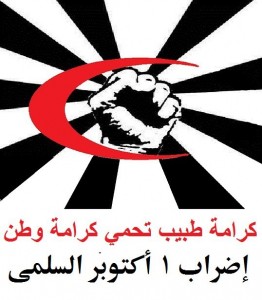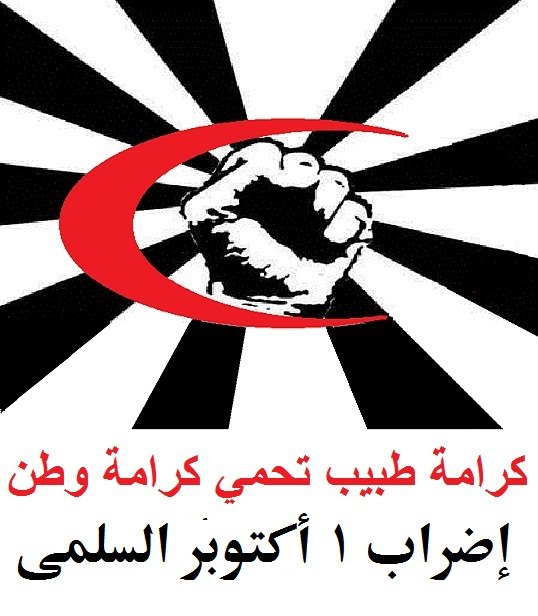
Doctors plan to treat patients for free in the upcoming week, in what they are describing as the “free treatment strike,” which they say will be their slogan throughout the week.
The move is the latest attempt at escalation of the partial strike started by public hospital doctors on 1 October. The strike came as a result of a Doctors’ Syndicate decision taken at their general assembly last month, and will enter its second week on Monday.
“They are trying to turn the patients against us so, we will treat all patients for free… .We will hit them where it hurts the most, ‘their pockets,'” read a statement from the elected committee tasked with negotiating and administrating the doctor’s strike.
The statement stressed that the move is aimed at fighting the corruption of the Ministry of Health, which has already lost millions due to the strike, doctors allege. Full details of the protocol that the doctors will follow as part of next week’s escalation are yet to be announced by the committee.
On Thursday night, eight political parties released a joint statement announcing their support for the strike. The parties also urged all citizens to show solidarity with the doctors who face “campaigns to destroy their image among public opinion.” The parties added that while many doctors barely make EGP 500 per month, the doctors have faced accusations that claim they make good incomes and are refraining from offering patients services to make more money.
The strike rests on three core issues. The doctors seek a new wage law to guarantee a minimum salary of EGP 3,000 per month. They ask for better security for hospitals, which have come under violent attacks over the past few months forcing many to shut down their emergency departments. And finally they demand an increase in the state budget allocated for the health sector to 15 per cent of the state budget. The current budget allocated for health does not exceed five per cent.
Throughout the strike many news services, including state-run television, have chosen to paint the patients as victims and show that they are suffering as a result of the strike. The doctors have responded through their committee statement, saying “it is no secret that there is a fierce organised campaign against the partial strike which the doctors had to resort to, so as to offer adequate healthcare to Egyptians….”
The statement added that the doctors’ demands are being pictured in the media as “categorical demands” which should be postponed.
The departments unaffected by the strike are receptions, emergency departments, intensive care units, incubators, kidney dialysis, and the oncology departments. The strike includes hospitals that belong to the Ministry of Health, but not university, armed forces or police hospitals.


